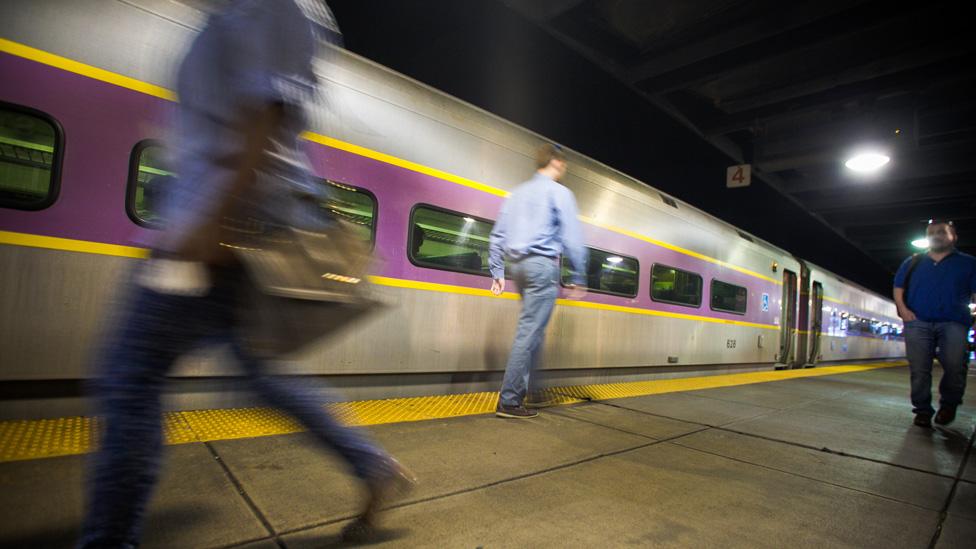What could the new Wales rail franchise mean?
- Published
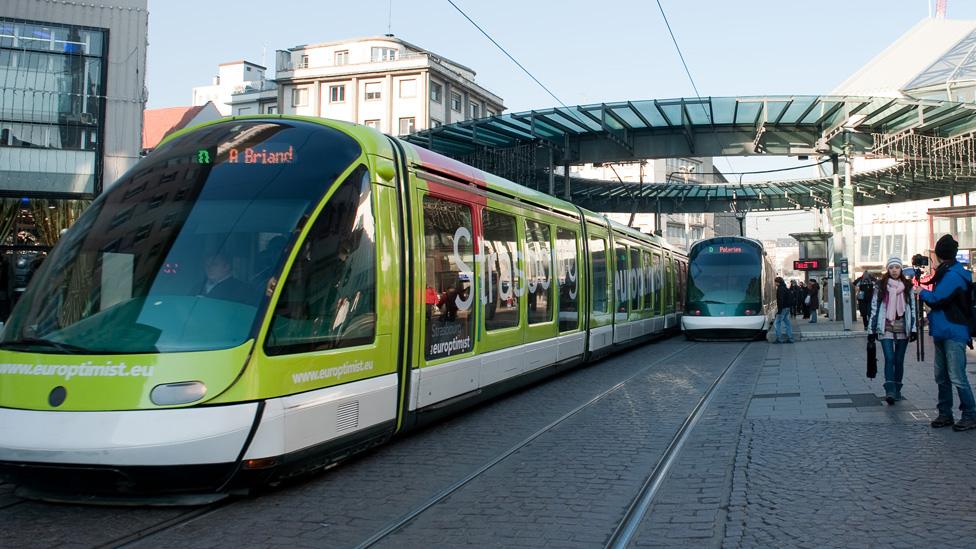
A Strasbourg tram operated by Keolis
Wales' rail service will be jointly run by two European firms over the next 15 years - France's Keolis and Spanish-owned Amey
The operators said while the changes would not happen overnight Wales' railway "would be unrecognisable" in five years time.
KeolisAmey will also drive forward the south Wales Metro in Cardiff and the valleys.
Prof Mark Barry, who drew up the first proposals for the south Wales Metro project, has been an adviser to the Welsh Government and to transport companies. He is professor of practice in connectivity at Cardiff University's school of geography and planning.
How do you think the rail franchise process has been handled?
Ultimately we should stand back and congratulate Welsh Government and Transport for Wales (TfW) for running probably the most complex procurement in rail industry history - and certainly the biggest in Wales - to try to determine who their best partner is for developing the network for the next 15 years. They ended up with two very credible bidders, with two very good solutions I'm sure. And that follows four years earlier work that I was involved with in setting up the principles and the original concepts.
When you consider that projects like this can take a long time. Take Crossrail - it was announced in 1987; that will open this year. We still haven't got a Heathrow runway. This is a remarkably quick turnaround for such a large scale project.
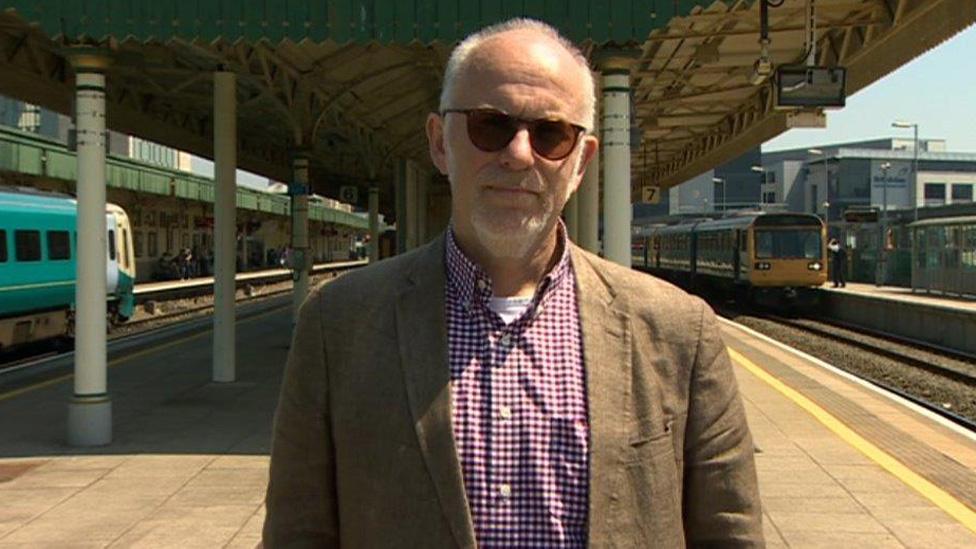
Prof Mark Barry said he was 'hugely excited' by what lay ahead
What are the challenges now - how do we improve the rail service but also deliver the completely new South Wales Metro?
It's huge, it's complicated, it's challenging but with Keolis you have a global organisation with a track record in delivering major urban transit systems. They run the Docklands Light Railway, they're now running the Manchester Metrolink, they have systems all over North America, France, Australia. They can do this. It's a three to five year design and implementation programme. We've gone through the original concept stage and two years of procurement, and now it's about designing and building the thing and then more after that. We've come a long way but I'm hugely excited we're going to do it at last.
When will passengers see a difference?
We will have to wait for details. But I'm sure any bidder would be looking at what they can do quickly, such as in terms of rolling stock. But in terms of the core Valley lines and the transformation we're talking about, there's a major infrastructure change that is required and that will take time. I guess they'll look to delivering that in the most time-efficient way possible, with the least disruption, to deliver the maximum benefits - and as soon as possible.
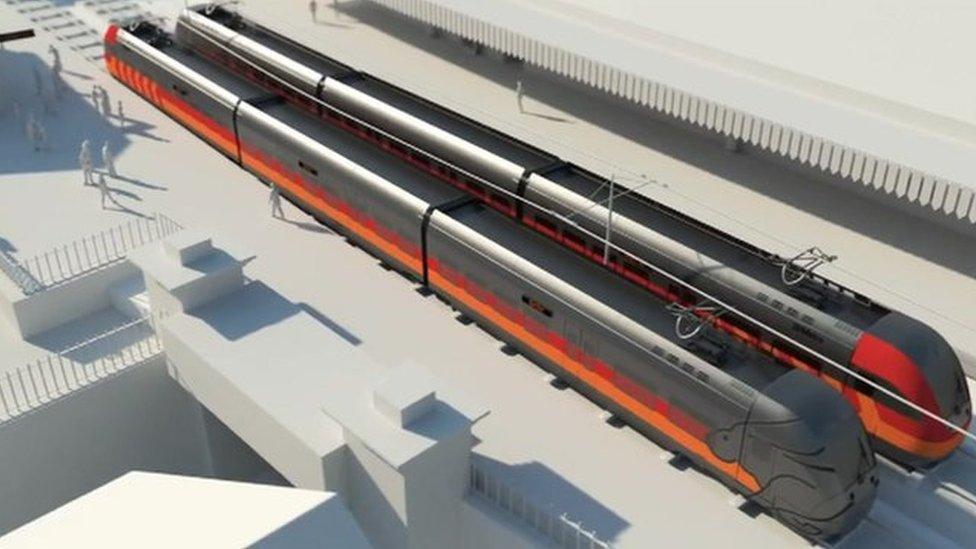
An image from a 3D animation of how the south Wales Metro might look
Will this deliver the South Wales Metro which you envisaged?
I do [think so]. The original features which were laid down - faster, more frequent services, more capacity, an extendable network, doing things which unlock new development opportunities for new stations and new lines - I think they will all be in there. In terms of what it will look like, you look at what Keolis do - a bit of light railway, underground, Metrolink - we'll see the detail in two weeks. But ultimately with an organisation of that scale and capacity, we'll see something pretty fantastic I think.
Prof Barry was talking to Brian Meechan, BBC Wales business correspondent
- Published23 May 2018
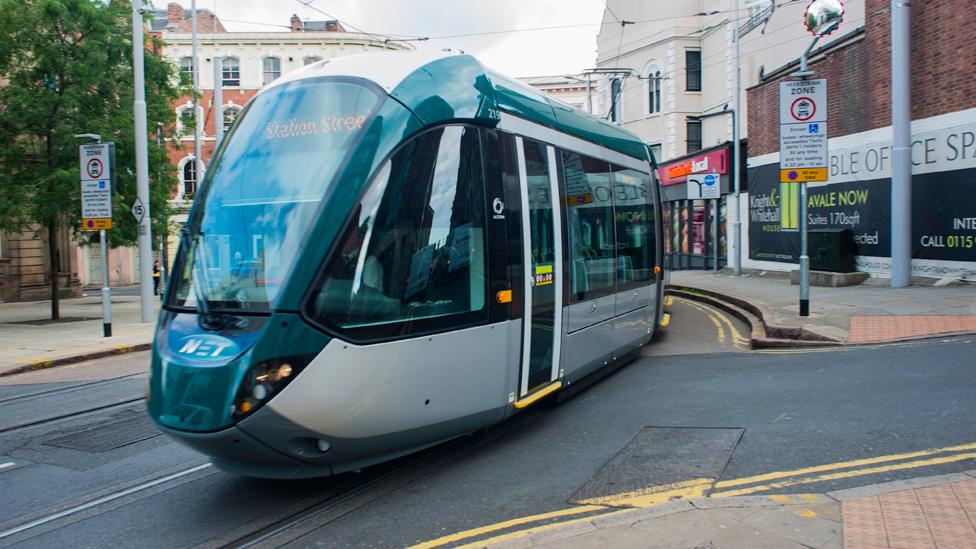
- Published22 May 2018
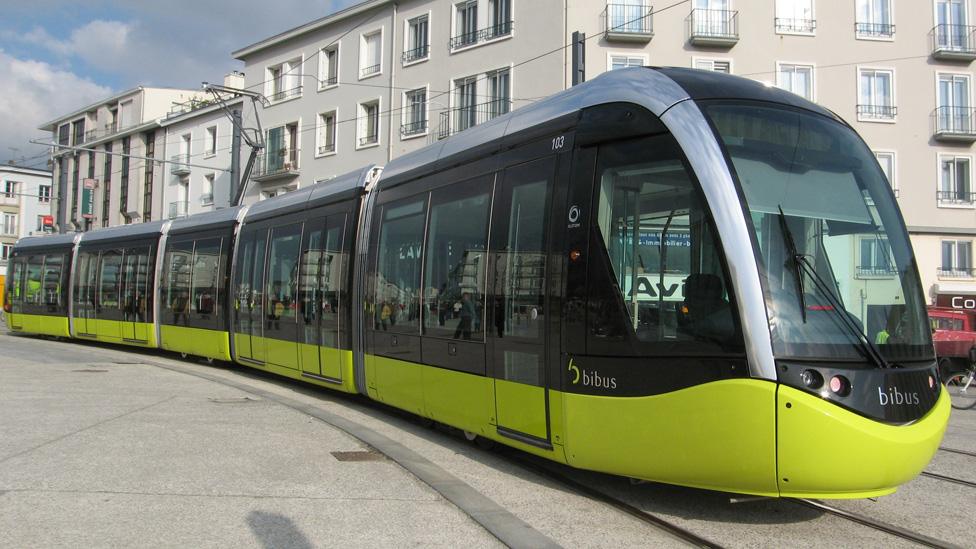
- Published23 May 2018
